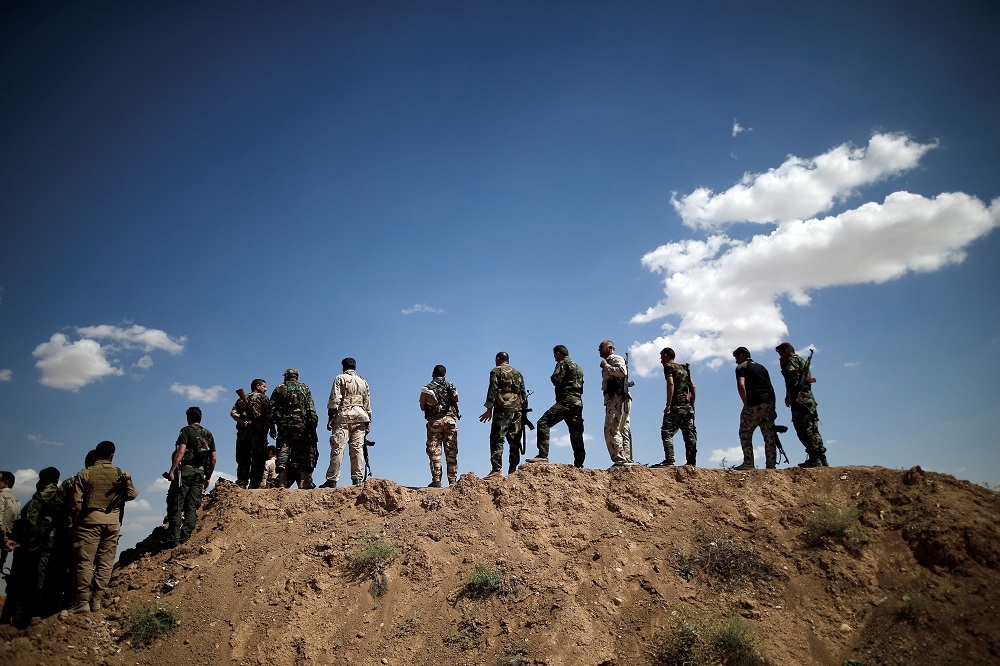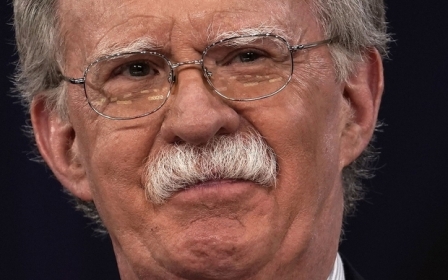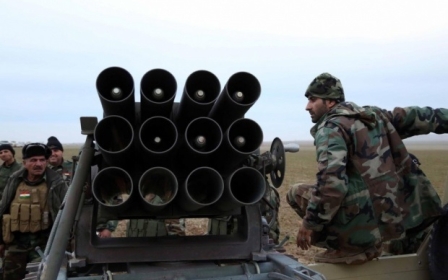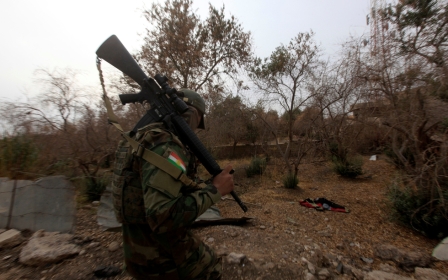Kurdish authorities in Iraq tortured children to extract IS confessions: HRW

The Kurdistan Regional Government in northern Iraq has used torture to unlawfully extract confessions from children on alleged involvement with the Islamic State (IS) group, Human Rights Watch has alleged, an accusation a senior Kurdish official denied.
The rights group said early Tuesday that nearly two dozen children reported being beaten, placed in stress positions and shocked with electricity by security officials, known as Asayish, in northern Iraq in 2017 and 2018.
Most of the children said they were not allowed to meet with a lawyer and were forced to sign confessions written by Asayish officials that they were not allowed to read, HRW said.
“My hands were bound and there were six or seven officers in the room. They were all hitting me. They hit my legs and upper arms," a 17-year-old boy told the rights group.
"Each day they gave me five electric shocks in a row, on my arms, chest, and upper legs. They said, ‘You need to say you were with ISIS, even if you weren’t you need to say it.'"
HRW said it interviewed 20 boys aged 14-17 who were charged or convicted of being affiliated with IS.
The group said it received the children's testimonies during a visit by researchers to a detention centre in Erbil, the capital of the Kurdish region, in November 2018.
At the time, HRW said 63 boys were being held at the facility, known as the Women and Children’s Reformatory, for alleged terrorism-related offences.
The reformatory is one of three facilities holding children in the Kurdistan Region of Iraq, HRW said.
A senior Kurdish official denied allegations of torture and unfair treatment of the boys, however.
Dindar Zebari, international affairs adviser to the Kurdish government, told AFP news agency that "HRW never visited" the detention centre.
"No one can be arrested unless the judiciary authorises it. And any person who has been arrested is treated in accordance with the law," he said, adding that the Kurdish government rejects the use of torture.
Torture 'occurring with alarming frequency'
Still, HRW said in its report that torture of child detainees is still taking place in the Kurdish region of Iraq.
“Nearly two years after the Kurdistan Regional Government promised to investigate the torture of child detainees, it is still occurring with alarming frequency,” said Jo Baker, HRW’s children's rights advocacy director, in a statement.
“The Kurdistan authorities should immediately end all torture of child detainees and investigate those responsible,” she said.
According to HRW, none of the boys quoted in the report had any contact with their families, while only a few said they had brief contact with a lawyer.
Most experienced speedy trials, including some that lasted no more than 10 minutes, the group said.
“At the trial, the judge asked if I was ISIS or not. I said I wasn’t. He read my confession. I said my confession came from torture, but the judge didn’t say anything. He sentenced me to six months. The trial lasted about 10 minutes,” a 14-year-old boy told HRW.
The rights group said it wrote to Zebari to get a comment on its findings.
Zebari responded on 18 December, HRW said, and said security officials are not allowed to torture detainees.
If torture occurs, he said the detainees "have a right to make a formal complaint".
"He also stated that detainees have the right to request a lawyer, that families are notified if a child is detained, and that child detainees can call their families with Asayish present," HRW said.
This article is available in French on Middle East Eye French edition.
Stay informed with MEE's newsletters
Sign up to get the latest alerts, insights and analysis, starting with Turkey Unpacked
Middle East Eye delivers independent and unrivalled coverage and analysis of the Middle East, North Africa and beyond. To learn more about republishing this content and the associated fees, please fill out this form. More about MEE can be found here.




